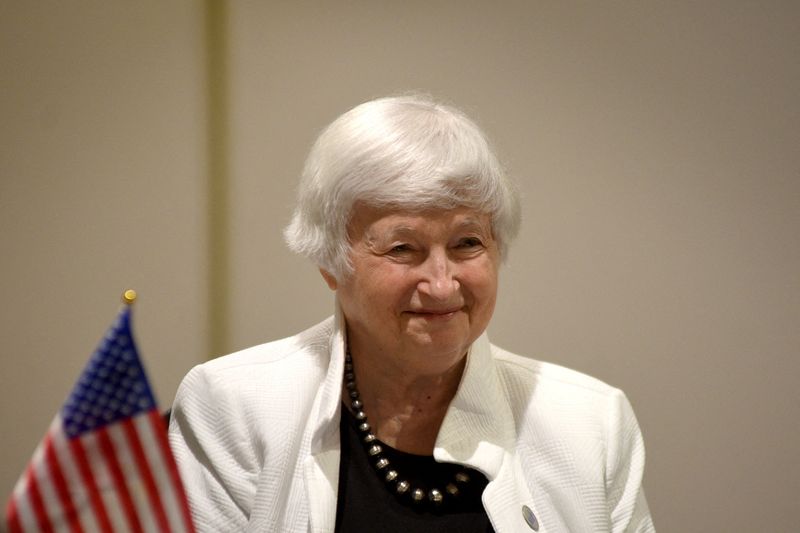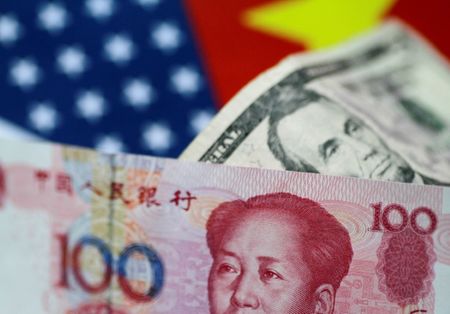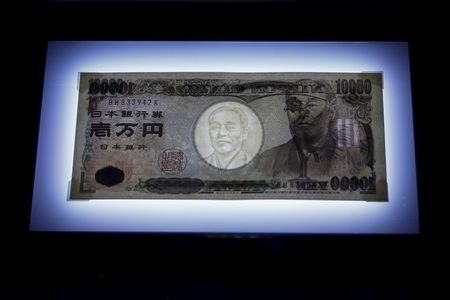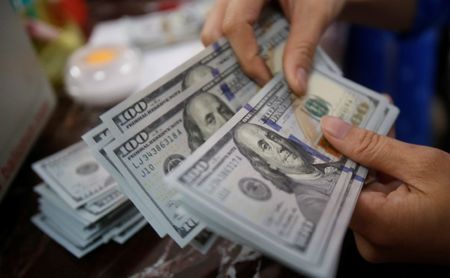The dollar was down on Wednesday morning in Asia, with the euro stuck at a five-week low as the war in Ukraine shows no sign of ending anytime soon. Investors also digested the Reserve Bank of New Zealand (RBNZ)’s biggest interest rate hike in 22 years.
The U.S. Dollar Index that tracks the greenback against a basket of other currencies inched down 0.04% to 100.250 by 11:39 PM ET (3:39 AM GMT).
The USD/JPY pair edged up 0.16% to 125.56.
The AUD/USD pair inched up 0.04% to 0.7462 while the NZD/USD pair inched down 0.03% to 0.6847.
The USD/CNY pair inched down 0.01% to 6.3653, with China releasing its latest trade data earlier in the day.
The GBP/USD pair inched up 0.09% to 1.3009.
RBNZ hiked its interest rate to 1.5% as it handed down its policy decision earlier in the day, adding that “the committee agreed that their policy ‘path of least regret’ is to increase the OCR by more now, rather than later, to head off rising inflation expectations. It is appropriate to continue to tighten monetary conditions at pace.”
Some investors had also expected the central bank to continue the tightening trend.
“The RBNZ’s decision to accelerate its hiking cycle shows it is willing to move decisively to get a hand on surging inflation,” Capital Economics economist Ben Udy told Bloomberg.
“We expect it to hike the OCR to 3% by the end of 2022.”
The Bank of Canada will hand down its own policy decision later in the day, with the European Central Bank and the Bank of Korea following on Thursday.
In Europe, hopes for a resolution to the war in Ukraine precipitated by the Russian invasion on Feb. 24 dimmed quickly after Russian President Vladimir Putin described peace negotiations are “a dead-end situation” overnight. The euro, which is sensitive to concern about the war’s economic impact, fell to $1.0821 and remained near that level in early Asia trade.
The U.S. dollar also cooled a recent rally as investors digested Tuesday’s inflation data from the U.S. and hoped that price pressures have peaked.
The data showed that the consumer price index (CPI) rose 8.5% year-on-year in March, its highest level since late 1981. The CPI rose 1.2% month-on-month, while the core CPI rose 6.5% year-on-year and 0.3% month-on-month.
The inflation data provided relief to the bond market and lowered U.S. yields, giving the yen a brief boost. However, as the CPI figure was the highest since late 1981 and the Fed looks to quicken the pace of interest rate hikes, the dollar’s fall was small.




